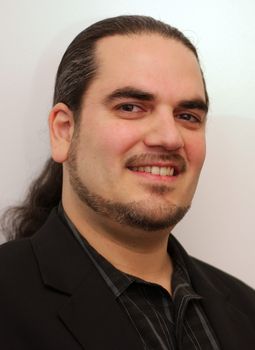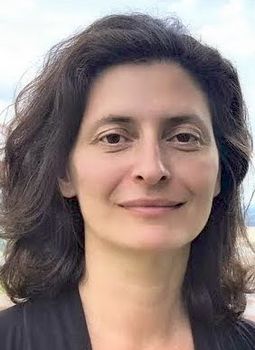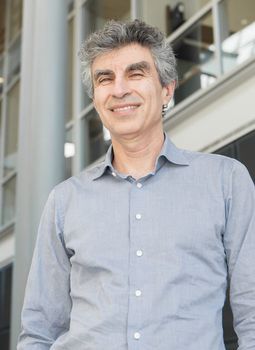Mila, the artificial-intelligence institute affiliated with Université de Montréal, is offering its expertise in machine learning to the scientific community to help solve the many challenges posed by the COVID-19 pandemic.
The institute has just launched a website, in English, called AI Against COVID, as a central meeting point for its many partners to gather, collect and analyze data securely and confidentially. These partners include health and research institutions, including universities.
Once the data have been parsed and classified, the partners will then be able to focus on projects that are most likely to lead to innovative and, most importantly, effective solutions, Mila hopes.
Projects underway to collect data
But already, various projects are underway within Mila. One is led by two Université de Montréal professors, Guy Wolf of the Department of Mathematics and Statistics (DMS) and Irina Rish of the Department of Computer Science and Operations Research (DIRO).
This project consists of developing a collaborative space that brings together data analysis specialists, researchers in machine learning, bioinformatics, immunology, virology and vaccine design.
"The objective is to provide an understanding of the progression of the COVID-19 virus, in order to assess risk based on different patient profiles, and to better identify targets for potential antiviral agents and vaccines under development," said Wolf.
"We need to collect proteomic and transcriptomic data, preferably at single-cell resolution," he added, "as well as meta-information so that we can understand how the coronavirus spreads and reproduces, depending on, for example, the age, sex and other factors of the patients."
Helping understand resilience
For instance, these data could provide a better understanding of the apparent resilience of young children to coronavirus infection compared to older people who are among those most at risk.
"Several researchers have already expressed interest and have begun to become involved in our project," said Wolf.
"But we are also looking for collaborators in all areas of informatics and health sciences - such as immunology experts specializing in SARS-CoV2 - to aggregate and combine all available data and information in order to arrive at solutions as quickly as possible."
Scientists interested in joining this scientific effort are asked to complete this form.
Other projects, from molecules on up
At the same time, renowned DIRO professor Yoshua Bengio is developing a deep reinforcement learning system that can rapidly evaluate billions of molecules, working with Jian Tang of HEC Montréal and other researchers from InVivo, an AI start-up.
The process involves gradually modifying a molecular structure by adding or removing building blocks to discover new molecular structures that can bind to a target protein. Researchers with expertise in deep reinforcement learning and drug discovery are being sought to contribute.
In addition, UdeM postdoctoral researcher Sasha Luccioni is working with UN Global Pulse scientists to identify research across the world that is being done on how artificial intelligence can counter the COVID-19 pandemic.
Luccioni has co-authored a scientific paper that addresses many facets of the crisis, including molecular modeling, epidemiology and diagnostics, to identify the most effective ways to use AI and the approaches being explored.
'Act in solidarity'
For Bengio, Mila's scientific director, the pandemic is a chance for science to rise to the fore and help humanity in a time of need.
"The COVID-19 crisis provides us with a profound motivation to act in solidarity and work together for the common good, collaborating with the sole objective of saving as many lives as possible," he said.
"Let's remember this spirit of collaboration when we return to a more normal life," he added.
"This spirit is also the spirit of science, whose emphasis is on the joy of living."









